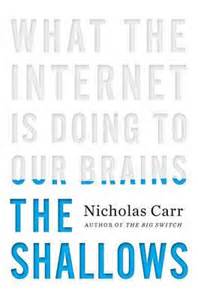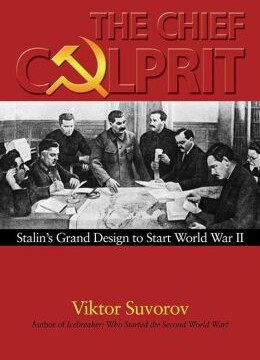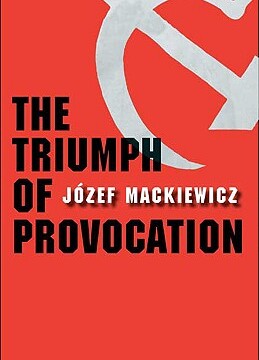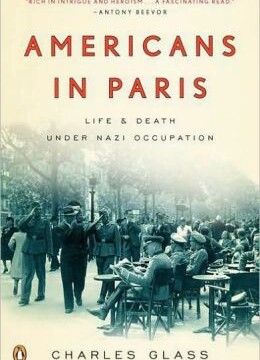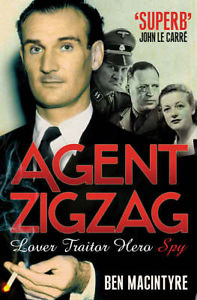“Who?” This was said in a tone of voice that could only be described as doubtful. I was on the phone with an Italian friend in London, explaining that I could not call him back later that evening because I was off to a concert. “It’s Gergiev, Valery Gergiev. Don’t you know? He’s the most...
Author: Andrei Navrozov (Andrei Navrozov)
The Dream Dealer
When I hear of the books in the history of publishing that were self-published, I react like Lenin, who, on hearing of the 5,000 print run of Mayakovsky’s poem 150,000,000, scoffed that it was “a colossal waste of paper.” E.E. Cummings, for instance, published The Enormous Room at his own expense, petulantly dedicating it to...
A Sad Coincidence
If you’ve read enough Dickens, England is the land of coincidence, so I was not surprised to hear that a friend had sold his Northamptonshire family seat to a Russian. Nor was the congenital gambler in me incredulous when I learned that the new master of the estate was a keen reader of my stuff...
Devil’s Mama
The rockets that, according to Khrushchev, were coming off his production line “like sausages” ran on kerosene and liquid oxygen. So did Soviet foreign policy. The kerosene was operational secrecy, an ingredient virtually unchanged since the 1920’s, whereby the regime concealed its expansionist aims. The oxygen was maniacal braggadocio, which persuaded the West to see...
Bulldozing Arcadia
Thirteen years ago I marched in one of the largest demonstrations in Britain’s history. The Countryside March had brought together environmental activists and critics of transnational business, dyed-in-the-wool Tories and leftover beatniks, peers and paupers. Today, if the ongoing Coalition versus the Countryside debate is any indication, it’s time to march again. In Greece, Megalopoli...
The Capitalist Nonesuch
When the first of the truly modern “modern politicians” straddled the front page, even the meliorism junkies of the New York Times deemed it proper to lament the creature’s arrival and to bemoan its lack of substance. But the journalists, as always, had no clue. In an age when money is not only paper but...
Tarzan’s Way
Last night we watched from the hotel terrace as a giant cargo ship cast anchor in the Tyrrhenian indigo and proceeded to unload fresh water for the whole of our sunburnt island, an enterprise which from that vantage point seemed a triumph of technology over nature. A moment’s reflection, however, would have neatly reversed the...
From JKF to DSK
When you ask a Russian of my generation or older about conspiracy theories, Kirov is the name that wanders into his mind as readily as the name Kennedy springs to yours. Thirty years and an ocean separate these deaths, whose aim, in both cases, was not so much the elimination of a political rival as...
Order No311
The document I am reading is public. It is an official directive of the Russian government to the ministries responsible for directing the country’s electronic industry, dated August 7, 2007, identified as “Government of the Russian Federation Order No311,” and entitled “Strategic Development of Electronics in Russia 2007-2025.” Last February, totalitarian power in the person...
Riding the Minotaur
The townhouse at 18 Belgrave Square consisted of 74 living rooms, salons, corridors, servants’ pantries, staircases, anterooms, and closets, and in 1866 it was deemed suitable to become the new London residence of the Austrian ambassador. The commodious townhouse had gone up early in the century as part of Thomas Cubitt’s development of Belgrave Square,...
I’d Walk a Mile for a Hockney
On occasion I have written here about the evils of photography, while other readers of this magazine may remember my having voiced more general apprehensions with respect to the transformation undergone by the human mind in an age when, by pressing a button, a suburban housewife may proclaim herself Baudelaire or Monet. Recently, I found...
A Sicilian Mirage
Everybody laughed at me as usual. The state of absolute passivity outwardly resembling the comatose, but distinguishable from it by voluntary alimentation and libation, was derided by my friends as unattainable. A Sicilian mirage. Yet it had been an idée fixe for years, my vision of a holiday so impeccably philistine it would reduce me...
And Now the Good News
Kierkegaard recalls somewhere that Caligula wanted to behead all of Rome. One can almost see his point. The news that comes over the transom is so uniformly bleak, so predictably monstrous, that it cannot but produce this kind of response in any number of men of good will. After all, it is mankind itself that...
Proudhon, Beauty and Lego
When I first read in a Soviet history book of Proudhon’s famous dictum that property is theft, I thought there had been a mistake in the typesetting. Obviously, the author had meant to say that property was not theft, but the proofreader goofed, making an interesting and valid observation into a gross and vulgar absurdity. ...
Leaving London, 2005
On the way to the airport we were stuck in systaltic traffic, my taciturn Charon and I, and the weather mimicked the condition, blazing with sunshine like a Neapolitan urchin’s smile one moment, dourly hawking tickets to the Museum of British Cloud the next. At times the sky was the color of Delft tile, reminding...
Our Aboriginal Future
Our ancestors, who lived in the forest, never had a moment’s peace. The forest spoke to them, ordered them about, punished or rewarded them, as their descendants would say now, 24/7. Every movement of the stone, every crack of the bough, and every cry of the bird had a meaning, and the meaning was largely...
The Last Corrida
Paseo de Hemingway goes nowhere now. I was at the last bullfight in Pamplona, the Catalan town beloved of Papa. On a stuffy night last July, I watched as a bull named Andador, with a flick of the horns identical to the one that had secured Spain her place in the World Cup Final some...
Retreat From Eden II
Last summer the inimitable Taki and I were staying under the same roof at the London house of our friend Natasha. I have loved our angelically guileless hostess for a quarter of a century, Taki since she was a baby, but all this is just a pompous way of relating that, like I this fateful...
Retreat From Eden
You do not need to be a reader of this column to surmise that the South of Italy is as close as one can get to Paradise without being a Nazi war criminal, in which case, needless to say, one resides in South America. We’ve got everything in Sicily, from medlars in springtime and tangerines...
Katyn 2
When, in 1934, Stalin had a Leningrad party boss killed—and then wept at the man’s funeral, railing at the enemies of Russia—a uniquely modern phenomenon, which I shall call state vendetta, was born. State vendetta is somewhere between conventional warfare and mafia violence. Where the narrow aim of the former is to suppress a specific...
Italian Justice
I have always hated students, a class as concrete to my mind as workers were to Karl Marx’s, a race as particular in my imagination as the Jews were in Alfred Rosenberg’s. Visiting a city like Florence, for me, is a painful experience, somewhere between what joining a gay-rights march would be for Taki or...
A Man of One Idea
The Russian edition of Viktor Suvorov’s Icebreaker: Who Started the Second World War? sports a blurb on the back, quoting a review of the English translation of the book published in a British newspaper on May 5, 1990. Suvorov, runs the quotation, is arguing with every book, every article, every film, every NATO directive, every...
Another Fake Rolexsky!
Of late I have been writing a good deal for Russian publications, including Snob, which has now given me a weekly column. Never in my wildest dreams did I think that my mother tongue would provide me with something like material comfort. A thorny path of spiritual improvement? Possibly. A way of finding better vodka,...
Bonkers in Space
Tarkovsky’s Solaris came out in 1972, which was the year I’d left Russia. It was not until a quarter of a century later that I watched the long and quaint film, and was strangely affected by it. I had always thought that nothing on the screen, if it was any good at all, could not...
A Chat With a Cabdriver
Britain was tense last October when the BBC announced that Nick Griffin, head of the British National Party, would be interviewed on one of its programs. They’s fightin’ again at the BBC, said a London cabdriver. It was front-page news for two weeks before the interview, and what began on the morning after could only...
A Voice From the Mass Grave
This difficult book has a long history. Zwyciestvo prowokacji was originally published by its Polish author, then a penniless exile in Munich, at his own expense in 1962. I first read the work in Russian translation some 20 years ago, thanks to the editorial heroism of Nina Karsov, who had brought out a Russian edition...
Crazy Russian No More
A quarter of a century ago, when I started writing for this magazine, I was the Russian. Along with the sense of exclusivity it afforded, that simple tag gave its owner a clear run through the 1980’s and 90’s on both sides of the Atlantic. I was the only Russian in any crowd, whether as...
The Salami Fallacy
A few months ago in this space I described the Pecorino Effect, referring not so much to the Italian cheese as to the shopper’s inability to refuse any merchandise he has sampled, irrespective of what he thinks of the quality. I diagnosed this modern malady, with myself as a specimen of social tissue in the...
The Brazilian Cow
In the middle of the 19th century, Sydney Dobell wrote a poem that contained the following line: “Ah! Ah! Ah! Ah! Ah! Ah! Ah! Ah! Ah! Ah!” This excursion into the absurd c. 1850 is readily recognized by readers of American poems or novels c. 1950 as a cry of the soul in torment. The...
Unpalatable Values: Culture as Gastronomy
To American readers the name A.A. Gill may mean nothing, but in England the restaurant and television critic of the Sunday Times is a cultural force to be reckoned with. A witty autodidact, with plenty of disdain for the pieties of the moment, to easily deafened ears he is a Jeremiah of the petit-four and...
Unpalatable Values: Culture as Gastronomy
To American readers the name A.A. Gill may mean nothing, but in England the restaurant and television critic of the Sunday Times is a cultural force to be reckoned with. A witty autodidact, with plenty of disdain for the pieties of the moment, to easily deafened ears he is a Jeremiah of the petit-four and...
Revision in Deadpan
Charles Glass, who lives in London, is an old friend of mine. He is, moreover, a member of White’s; a witty conversationalist; an American with impeccable manners; immaculate, if slightly Brooks Brothers conservative, in his dress; and almost universally liked. Hence the fact that he has published, to near unanimous critical acclaim in Britain, a...
The Right Fork
The chronological niche which the generation of D.J. Taylor’s title occupies, 1918-40, will be remembered by future historians—if, indeed, there should be any such creatures among the oafish homunculi now incubating in the totalitarian crucibles of modern life—for sheltering the end product of the West’s millennial evolution. Good or bad, foolish or clever, talented or...
The Blind Ape
In the 1970’s, one hardly ever heard the word atheist. One had the impression that the impassive majority never considered the subject long enough to have made the term a part of their active vocabulary; while the typical exception would proffer, with an upraised finger and a coy smirk, something along the lines of “let’s...
The Ulema and I
On the flight to Bombay—which a British single mother with an addiction to horse tranquilizers, or a benefits administrator dispensing them, would call Mumbai—I came across a Times of India news report entitled “6,000 Ulema back fatwa on Terror.” I recalled that the first time I heard the word fatwa was in connection with Salman...
Luck and the Mass Man
Why was Christ put to death? Because Caiaphas, who was high priest that year, had told the Sanhedrin, “Ye know nothing at all, nor consider that it is expedient for us that one man should die for the people.” Literally, Caiaphas was inviting the Pharisees to reason through—logizesthe is the Greek word—to calculate, or to...
The Prism’s Prison
Sometimes it seems that I have become the master of a single plaintive note, sung by the disembodied voice of the patron saint of grasshoppers, Marie Antoinette, from somewhere beyond the tomb. And it is true that often, when I reread whatever I have written, I am reminded of Russian dictionaries of fenya, or for...
Thin End of the Wedge
A shopkeeper in the Vucciria market in Palermo offers me a taste of local peccorino cheese on the tip of something that looks like a machete. It is a classic Proustian moment. The inner mouse accepts, nibbles at the wedge with a thoughtful face, and goes for three quarters of a kilo. Is there a...
In Praise of Having Not
A splendid Traviata at Palermo’s Teatro Massimo the other night—with its colorful gambling scene at the close of the Second Act, when a jealous Alfredo wins an armful of banknotes only to throw them in Violetta’s face—made me think of nothing. Nothing as an end in itself, nothing as the animating spirit of all sublunar...
A Sicilian Visit
In Dürrenmatt’s The Visit, an aging billionairess returns to the provincial town where she was born and announces to the townsfolk that she will leave them all her money, on one condition. They must kill the man, himself now aging, who deceived her years ago. The townsfolk noisily reject the lady’s proposition as immoral, but...
Classifying Italy
The neighbor’s house sported a prato inglese that required ostentatious watering at the crack of dawn, and by the reassuring suppleness of the English lawn beneath our feet we all knew that our host was a gentleman, not some television mogul from Cinecittà out of Rome whom, of a morning, one would be embarrassed to...
Return to McSorrento
In the 1970’s, when I lived in America, McDonald’s, apart from being a fast-food chain, was a powerful symbol of everything that was wrong with that country. Neither I nor anybody I knew ever referred to the leviathan as a source of nourishment; invariably, its name was placed in a quarantine of ironic quotation marks,...
Letter From a Hot Town
Cimabue the painter, passing on the road to Bologna, saw, as he walked through the village of Vespignano, a boy called Giotto drawing a sheep on a flat piece of rock. This was the moment with which, more than a century later, Lorenzo Ghiberti, the sculptor and the first art historian of the Renaissance, began...
Curiosity as a Social Force
“Curious Barbara’s got her nose in a sling,” goes the Russian admonition against prurience, more puzzling, if anything, than the equivalent English adage concerning the killing, in similarly umbrageous circumstances, of the cat. Why should Barbara meet with such a fate? Just how did it happen that curiosity brought about the death of Fluffy? As...
Curiosity as a Social Force
“Curious Barbara’s got her nose in a sling,” goes the Russian admonition against prurience, more puzzling, if anything, than the equivalent English adage concerning the killing, in similarly umbrageous circumstances, of the cat. Why should Barbara meet with such a fate? Just how did it happen that curiosity brought about the death of Fluffy? As...
The Rhetoric of Fashion
“For his birthday his wife gave him a riding crop that cost 100 francs,” a writer called Arnold Ruge complained of his newly married friend, a fellow German émigré in Paris, and the poor fool does not ride, nor has he a horse. Everything he sees he wants to have, a carriage, smart clothes, a...
Lobar Warming
Scoffers may deride the proposition I find instinctively plausible, that the consonants and the vowels of speech are its masculine and feminine constituents, though the same scoffers would not think to keep a professor from speaking of male rhymes or an electrician of female plugs. Yet the role of women in many societies, historically considered,...
A Spy Thriller to the Wise (Review: Agent Zigzag)
It is almost inevitable that a reader of my interests and disposition should slightly miss the point of this book, described in a Daily Express blurb as “a good spy thriller,” and that is precisely what I propose to do. Spy thrillers are plentiful; ...
Memoirs of a Bridegroom
If the typical life of a young couple resembles an Oriental bazaar, where the clamoring for jewels, perfumes, spices, silks, and other aphrodisiac appurtenances of fata morgana breaks on the morose tightfistedness of those who can afford them, in my case the reverse was true, not only because I could afford nothing, but because my...
A Spy Thriller to the Wise
It is almost inevitable that a reader of my interests and disposition should slightly miss the point of this book, described in a Daily Express blurb as “a good spy thriller,” and that is precisely what I propose to do. Spy thrillers are plentiful; they are summer reading at its Sardinian beachiest. To review one...




